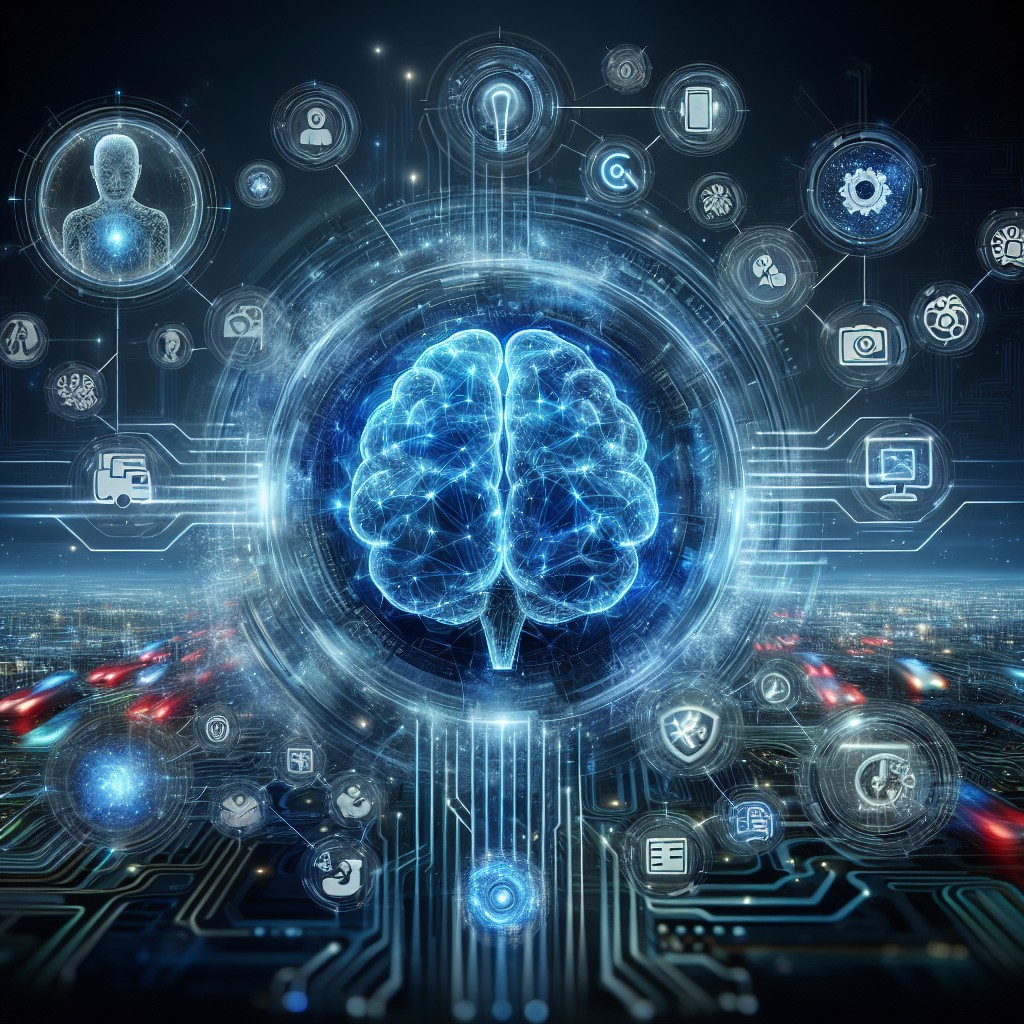Introduction:
Artificial Intelligence (AI) has emerged as one of the most transformative technologies of the 21st century. This revolutionary field encompasses a wide range of applications that enable machines to simulate human intelligence, learn from experience, and perform tasks that typically require human intelligence. From self-driving cars to voice assistants, AI is reshaping various industries and is set to revolutionize the way we live and work. In this article, we delve into the intricacies of AI, its potential, challenges, and ethical considerations.
1. Understanding Artificial Intelligence:
Artificial Intelligence refers to the development of intelligent machines that can perform tasks requiring human intelligence such as visual perception, speech recognition, decision-making, problem-solving, and language translation. AI systems are designed to analyze vast amounts of data, learn from patterns, and adapt accordingly. Machine Learning (ML) and Deep Learning (DL) are two prominent subsets of AI that enable systems to learn from experience and make predictions or decisions without explicit programming.
2. Applications of AI:
AI has found applications across various industries, transforming the way we interact and accomplish tasks. Some notable applications include:
- Healthcare: AI is used for disease diagnosis, drug discovery, personalized medicine, and robotic surgeries.
- Finance: AI algorithms are employed for fraud detection, risk assessment, and algorithmic trading.
- Transportation: Self-driving cars and predictive maintenance systems are examples of AI implementation in this sector.
- Manufacturing: AI-powered robots and automation systems enhance efficiency, precision, and safety in manufacturing processes.
- Customer Service: Chatbots and virtual assistants are revolutionizing customer interactions, providing instant support and personalized recommendations.
3. AI Challenges and Limitations:
While AI offers immense potential, several challenges need to be addressed for its responsible development and deployment, including:
- Ethical Concerns: AI systems must be designed with ethical considerations to ensure fairness, transparency, and accountability.
- Data Bias: AI algorithms are trained on large datasets, which can inadvertently perpetuate biases present in the data, leading to discriminatory outcomes.
- Privacy and Security: The use of personal data for AI raises concerns about privacy and data security, necessitating robust safeguards and regulations.
4. Ethical Considerations:
As AI becomes more prevalent, ethical considerations become paramount. Some key ethical issues include:
- Job Displacement: The automation of tasks through AI can lead to job losses and socioeconomic disparities, requiring proactive measures for retraining and job creation.
- Human Control: Maintaining human control over AI systems is crucial to prevent unintended consequences or misuse.
- AI Governance: The development of ethical guidelines, regulations, and standards is essential to ensure responsible AI use.
5. The Future of AI:
The future of AI holds tremendous potential for innovation and advancement. Anticipated developments include:
- Natural Language Processing: AI systems will become even more proficient in understanding and generating human language, enabling seamless communication.
- Robotics and Automation: AI-powered robots will play a crucial role in industries such as healthcare, manufacturing, and agriculture.
- AI-powered Healthcare: AI will enable personalized medicine, faster drug discovery, and improved disease diagnosis through advanced imaging and data analysis.
- AI and Sustainability: AI can contribute to addressing global challenges such as climate change by optimizing energy consumption and improving environmental monitoring.
Conclusion:
Artificial Intelligence is revolutionizing the world, offering immense potential to transform industries, improve efficiency, and enhance our daily lives. However, it is crucial to address ethical concerns, ensure fairness and accountability, and establish robust regulations to harness AI's benefits responsibly. As AI continues to advance, it is poised to shape the future and drive innovation in countless domains, paving the way for a more intelligent and connected world.

Published on January 5, 2023
Artificial Intelligence: Revolutionizing the Future
Share This Article
More Articles You Might Like
Discover More Content
Explore our collection of articles across various topics and categories. From cutting-edge technology insights to wellness wisdom, we curate the best stories to expand your horizons.
Article ID: 1